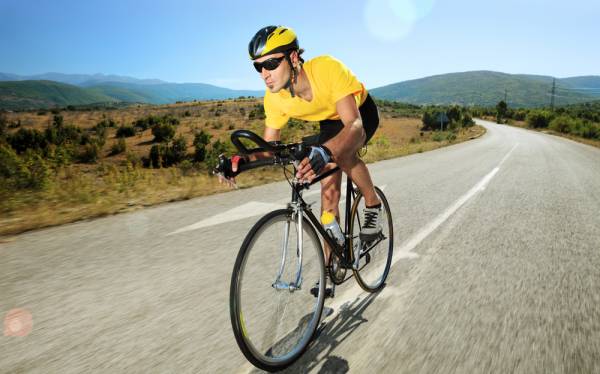Here is a strange article I came across. No, it’s not about how to adapt a science fiction light energy propulsion system to enable you to cycle faster. But, the article does describes an easy way to save over a minute on a 10km time trial – just by using light and its effects on your body physiology.
RELATED: The Accumulation of Marginal Gains: Gear Tips for Cycling Faster
Bright Light Before Bed Is Good?
If you have ever been a practitioner of early morning training, you know how difficult it can be to arrive fully alert and ready to go. Some while ago, I bought an alarm clock with a built-in light system to help me get over that early morning blah, and it works for me.
What was different in this article I discovered was how the subjects actually used light the evening prior to a test to achieve better results. The news often comments and speculates about the effects bright light from mobile devices immediately before going to bed can have upon sleep quality. So when I saw this article, the alarm bells rang straight away, since I have always advocated that a good night’s sleep prior to an event is beneficial.
“What was different in this article I discovered was how the subjects actually used light the evening prior to a test to achieve better results.”
So, here is what the study found on the two groups of cycling test subjects. One group was subjected to low light and no light before going to bed. The test group was subjected to bright light before going to bed.
- The control group as subject to a regimen that started at 20:00 and comprised 45 minutes in low light, 60 minutes of no light, and then a further 30 minutes of no light, prior to 75 minutes of dim light before going to bed.
- The test group as also subject to a regimen that started at 20:00 and comprised 45 minutes in low light, 60 minutes of no light, and then 30 minutes of bright, prior to 75 minutes of dim light before going to bed.
- The difference between the two groups being the period of 30 minutes light or no light prior to 75 minutes before going to bed.
RELATED: Why Proper Sleep and Melatonin Are Absolutely Essential
The paper described a number of physiological factors that were tested, including melatonin levels and core temperature. However, the take-home message for me was the 10km time trial test results. The bright-light group was 1.43 minutes faster than the no-light group, who took 20.10 minutes to complete the distance. An improvement of seven percent.

A Big Improvement in Performance
It takes a lot of training to get a seven percent improvement in performance, so this is definitely worth trying. I know we do not typically take part in the same routine that the no-light group did or live in controlled conditions as part of our regular activities, so the improvements may not be quite as significant in real life. But would you be happy for just a few percent? I know I would.
“It takes a lot of training to get a seven percent improvement in performance, so this is definitely worth trying.”
So, try the thirty minutes of bright lights and then 75 minutes of low light before going to sleep. As always with something new, do not test it out for the first time the night before race day. Try a few practice sessions first. Maybe try it the night before a hard training session to see how it impacts you.
I would be interested to hear from anyone that tries this either for their events or getting a bit more out of training sessions. Let us know how it went in the comments below.
References:
1. Thompson A. et al “The Effects of Evening Bright Light Exposure on Subsequent Morning Exercise Performance”. Int J Sports Med. 2014 Oct 6.
Photo 2 courtesy of Shutterstock.






